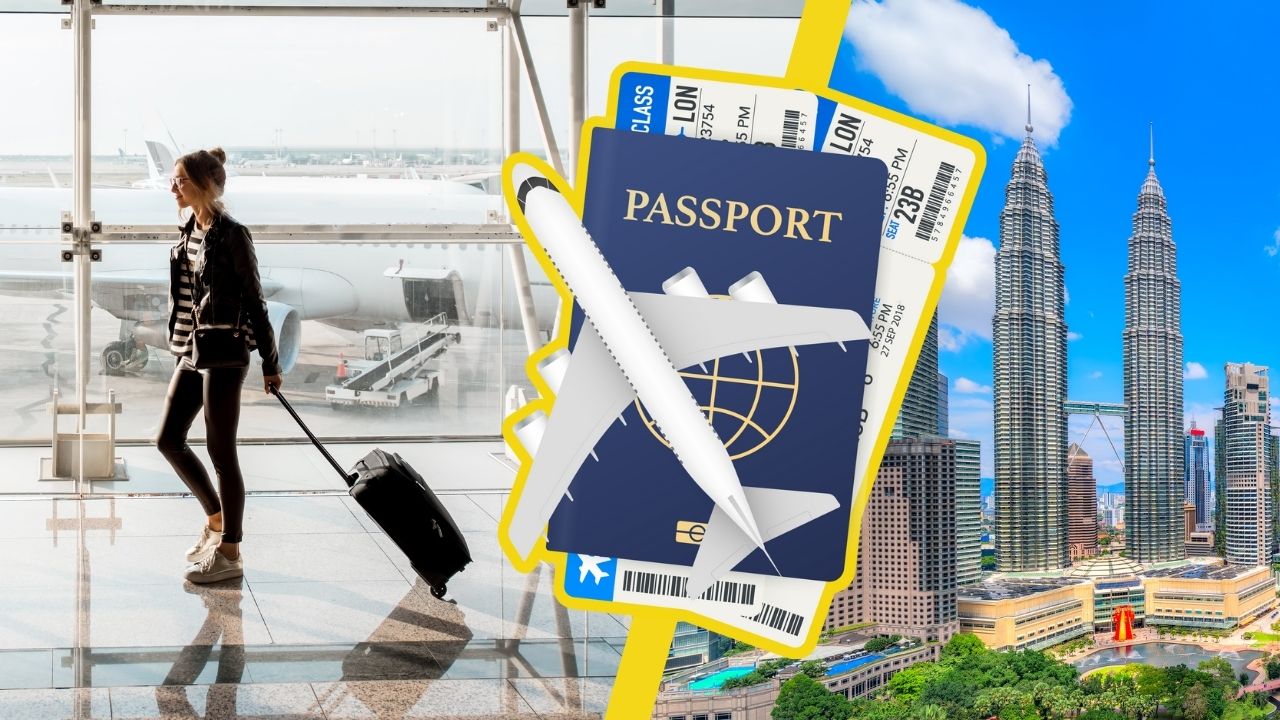
How To Get a Work Visa in Malaysia - A Guide for Businesses
05 Jul, 20249:20Expanding your business into Malaysia is an exciting venture that can open new markets and g...

Expanding your business into Malaysia is an exciting venture that can open new markets and growth opportunities.
With its modern cities, excellent infrastructure, and robust business environment, Malaysia offers many opportunities for professional growth. The country's welcoming atmosphere and expat-friendly lifestyle make it an ideal choice for those seeking career advancement and a fulfilling lifestyle abroad.
However, one critical step in this process is obtaining the appropriate visas for employees and executives.
In this blog, we’ll provide a clear overview of the Malaysian visa process, ensuring a smooth transition for companies and clients looking to establish a presence in Malaysia.
Understanding the Types of Visas
Malaysia offers several visa options for business purposes, each catering to different needs and durations of stay. Here are the primary types of visas relevant to business expansion:
Employment Pass (EP)
This visa is typically granted to highly skilled foreign workers, professionals, and executives. It is suitable for professionals, including engineers and skilled tradesmen, as it allows them to legally work and reside in Malaysia for the duration of their employment contract. To be eligible for an EP, the applicant must have a valid job offer from a Malaysian company and meet certain criteria, such as possessing specialised skills, qualifications, and relevant work experience.
The EP application process is usually facilitated by the employer, who is required to submit the necessary documents to the Malaysian immigration authorities. It’s divided into three categories based on salary range:
- Category I: For those earning a minimum monthly salary of RM 10,000. This pass is valid for up to five years.
- Category II: For those earning between RM 5,000 and RM 9,999 per month, valid for up to two years.
- Category III: For those earning between RM 3,000 and RM 4,999 per month, valid for up to one year and renewable twice.

Professional Visit Pass (PVP)
This type of visa is designed for foreign nationals who intend to engage in short-term professional activities in Malaysia and is typically granted to individuals undertaking professional assignments, such as consultations, audits, or technical work.
The application for a PVP is usually initiated by the inviting organisation or company in Malaysia, which must provide supporting documents outlining the purpose, duration, and scope of the visit. Upon approval, the PVP holder is permitted to enter Malaysia for the stated professional activities, subject to the pass conditions. This pass is usually valid for up to 12 months.
Dependent Pass (DP)
The Dependent Pass (DP) visa in Malaysia is designed for the immediate family members of foreign nationals with valid work visas, such as an Employment Pass or a Professional Visit Pass. This visa is suitable for the spouse and unmarried children below 18 years of age of the primary visa holder.
It enables the dependents to legally reside in Malaysia and, in some cases, permits them to take up employment or study there. The application for a Dependent Pass is usually processed alongside the primary visa application, and the primary visa holder is typically required to demonstrate proof of relationship and financial means to support the dependents during their stay in Malaysia.

Long-Term Social Visit Pass (LTSVP)
Family members of expatriates who do not qualify for a Dependent Pass can apply for this pass. The Malaysian Long-Term Social Visit Pass (LTSVP) is designed for certain family members of Employment Pass holders, such as unmarried spouses, children over 21, and parents or in-laws.
Holders of the LTSVP are generally not allowed to work in Malaysia unless they obtain an endorsement to work, which requires a separate application and approval from the Immigration Department of Malaysia. The LTSVP provides a more extended period of stay for the dependents, allowing them to accompany and reside with the principal Employment Pass holder in Malaysia for up to five years.
Steps to Obtain a Malaysian Visa
Overall, the visa application process for Malaysia can vary in length depending on the type of visa applied for and the applicant's eligibility for an electronic visa. To avoid costly delays, employers and employees must know what to expect during the application process.

1. Determine the Appropriate Visa
Before initiating the application process, it is crucial to identify which visa category aligns with the employee's role and salary. This ensures that you gather the correct documentation and meet the specific requirements.
2. Prepare the Required Documentation
Each visa type has its documentation requirements. Generally, the following documents are needed for an Employment Pass:
- Copy of the applicant's passport.
- Employment contract or offer letter.
- Company registration documents.
- Educational certificates and relevant qualifications.
- Detailed job description.
- Recent passport-sized photographs.
- Medical report (if applicable).
3. Submit the Application
To submit a Malaysia visa application, individuals can follow these steps once they have gathered all the necessary documentation:
- Online: Visit the official website of the Immigration Department of Malaysia or the designated visa application portal. Fill out the online application form and upload scanned copies of the required documents. You will also pay the visa application fee using the available online payment methods.
- In-Person Submission: If applying through a visa processing centre or embassy, schedule an appointment for an in-person submission. Bring all original documents, the completed application form, and the payment receipt to the designated visa submission centre.
After submission, applicants can track the status of their visa application online using the provided application reference number. Following these steps and ensuring all documentation is in order will help streamline the Malaysia visa application process.
Moving to Malaysia
Once approved, the applicant will receive an approval letter. The applicant must apply for a VDR at the Malaysian embassy or consulate in their home country and present their VDR and approval letter at the immigration checkpoint.
After entering Malaysia, the applicant must undergo a medical examination at an approved clinic, register their information with the Immigration Department and collect their Employment Pass or Professional Visit Pass card.
Tips for a Smooth Visa Process
- Start Early: Begin the visa application process well in advance to account for any delays or additional documentation requests.
- Ensure Accuracy: Double-check all documents for accuracy and completeness to avoid rejection or delays.
- Stay Updated: Regulations and requirements can change. Check the official Malaysian immigration websites regularly for the latest information.
- Consult Professionals: Consider engaging immigration consultants or staffing solutions companies to navigate complex cases and ensure compliance.
Expanding Globally
Expanding your business into Malaysia requires careful planning and adherence to visa regulations. Companies and clients can facilitate a smooth and successful entry into the Malaysian market by understanding the types of visas available, preparing the necessary documentation, and following the outlined steps.
Partnering with an Employer of Record (EOR) can simplify the process, enabling you to focus on your business goals whilst your EOR partner navigates the complexities of hiring abroad.
NES Fircroft’s expert recruitment teams source engineering and technical professionals for global roles with some of the biggest names in the Oil and Gas, Power and Renewables, Construction and Infrastructure, Life Sciences, Mining, Automotive, and Chemicals sectors worldwide.
With offices in over 45 countries and decades of experience in international expansion, we can help you hire employees quickly, compliantly and with minimal risk.
Contact us to discuss how we can support your international workforce.








